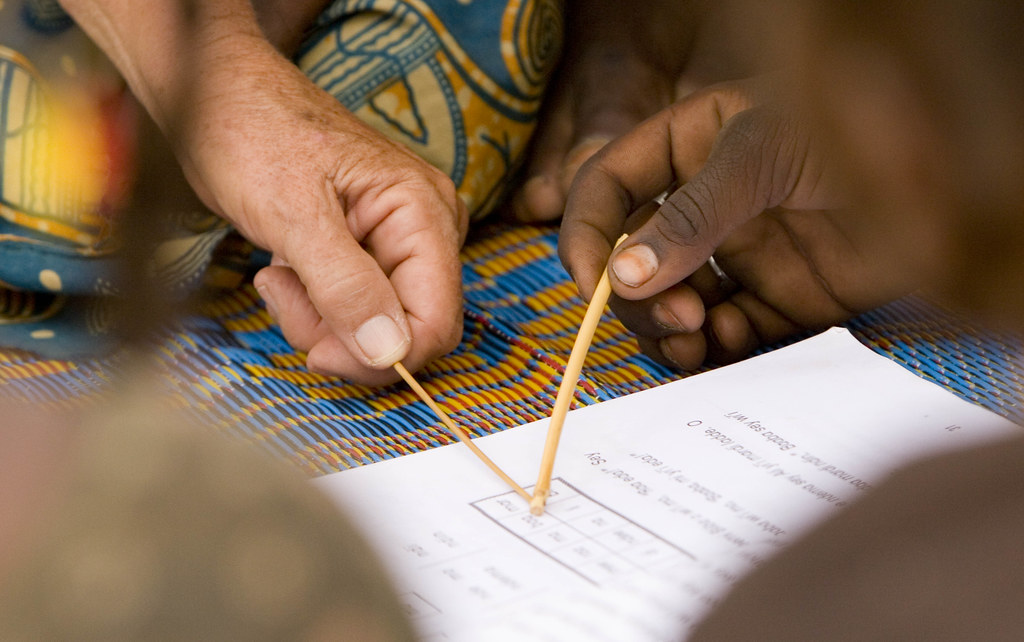Where the wind blows
By Tohru Inoue | International

Photos by Joni Byker
When my family and I lived in rural South Sudan, we were used to living by the rhythm of the seasons. Mangos come in March; the winds signal the start of the rains in April; the pumpkins are ready for harvest in October; and a group of nomadic travellers stroll into town in December and depart like the moving season in April.
They camped out nearby and would come to the clinic in Doro, South Sudan where SIM has a team. Their language was foreign, their clothing and hairstyle atypical for the region. They were quite distinctive.
They drove their herds of cattle across great distances. As a people, they occupy the vast and sparse lands across the Sahel from West Africa to as far east as Ethiopia. They are a people on the move, following the rains to new pastures. Never so anchored to call any one place “home”; never so attached to a watering hole that they think they might settle. Like the rain, they follow the seasons dictated by the wind. Never aimless, always purposeful, driven. Always reading the weather, always reading the wind.
Welcome to the Fulani way of life.

Again, this year, some of the Fulani came into Doro. One of our South Sudanese colleagues visitied them. Meanwhile, in faraway Chad, other workers were meeting with Fulani believers. A few divine connections later, a short video made its way to some of the nomadic Fulani in South Sudan. The video was a greeting by a Nigérien Fulani evangelist. Despite the distance between these two groups, they understood the video perfectly. While the more settled of the Fulani have found their languages slowly evolving, the ones on the move have found theirs change relatively little. Arabic varies widely from country to country, but these two groups of Fulani who have never met and who live in different countries can communicate seamlessly. It’s possible that they are members of the same nomadic subgroup.
A video reply followed, and soon, an exchange was happening between two groups nearly 2,700 kilometres apart.

Now, what if a movement of the gospel happened among this group? What if the gospel went wherever these people travelled – from Senegal along the Atlantic Ocean across the Sahara, all the way to the highlands of Ethiopia – and was still understood perfectly? What if “church” was wherever they travelled? What if the gospel took hold of these people following the seasons of the rains dictated by the wind?
Do you remember that verse in the gospel of John?
“The wind blows wherever it pleases. You hear its sound, but you cannot tell where it comes from or where it is going. So, it is with everyone born of the Spirit.” (John. 3:8)
One day, they are here, but when the wind dictates they should be somewhere else, that’s where they’ll be. Because they will follow the wind.

You may see them from time to time when they pop in to say hello. It might put a smile on your face knowing that today the wind is blowing your way. And you should invite yourself to where they’re camping out under the trees. And you should ask them to tell you all the stories of where they’ve seen the wind blowing.
There are only around 20,000 believers in a group of 40 million, but the number is growing. Many are finding faith in the One who harnesses the wind and the seasons.
Pray for
• the gospel message to spread among this unreached people group.
• the Nigérien Fulani evangelist in his ministry. Ask God to provide divine appointments.
If you felt a tug at your heart, perhaps God is calling you to serve here? Please contact us to start a conversation.
Related stories

Doro Clinic outreach programmes reach the forgotten with care and the gospel
In South Sudan’s Maban County, medical teams from SIM’s Doro Clinic are reaching refugees who can’t reach them, bringing healing, hope and the gospel to the sick, the stigmatised and the overlooked.

Today for Tomorrow is rooting the next generation in Christ across Southern Africa
Today for Tomorrow began with just five children when SIM mission worker Graham, Jessie and Chris Maphosa saw a gap in how children were being discipled. While serving in Zimbabwe, Chris and colleagues developed the T4T training programme to help pastors and teachers share Christ-centered lessons in ways children could understand. Today, the ministry has grown significantly and continues to shine across the region.

Our call to care for the planet goes beyond recycling: lessons on creation stewardship
As a child growing up in Canada, I thought recycling was the best way to help the planet. The world’s problems were much too big for us as children, but finally, there was something we could do as well, right from our home. But my understanding of all my efforts were turned on its head when I chatted with Ian Ratcliff, SIM's Ministry Point Person for Creation Stewardship and Care.

